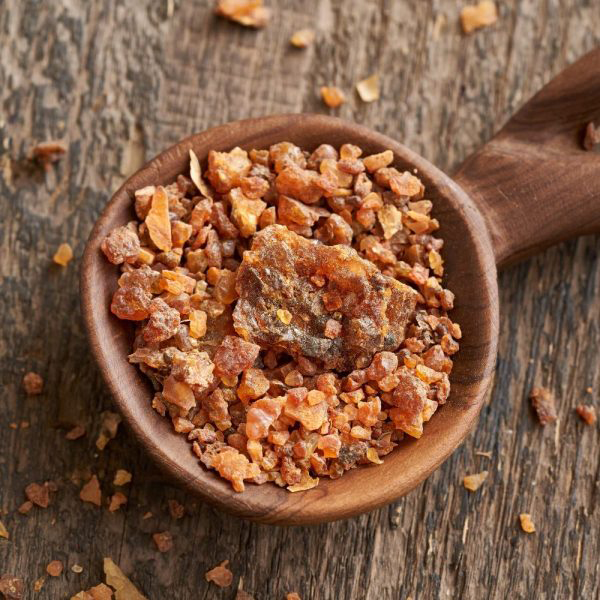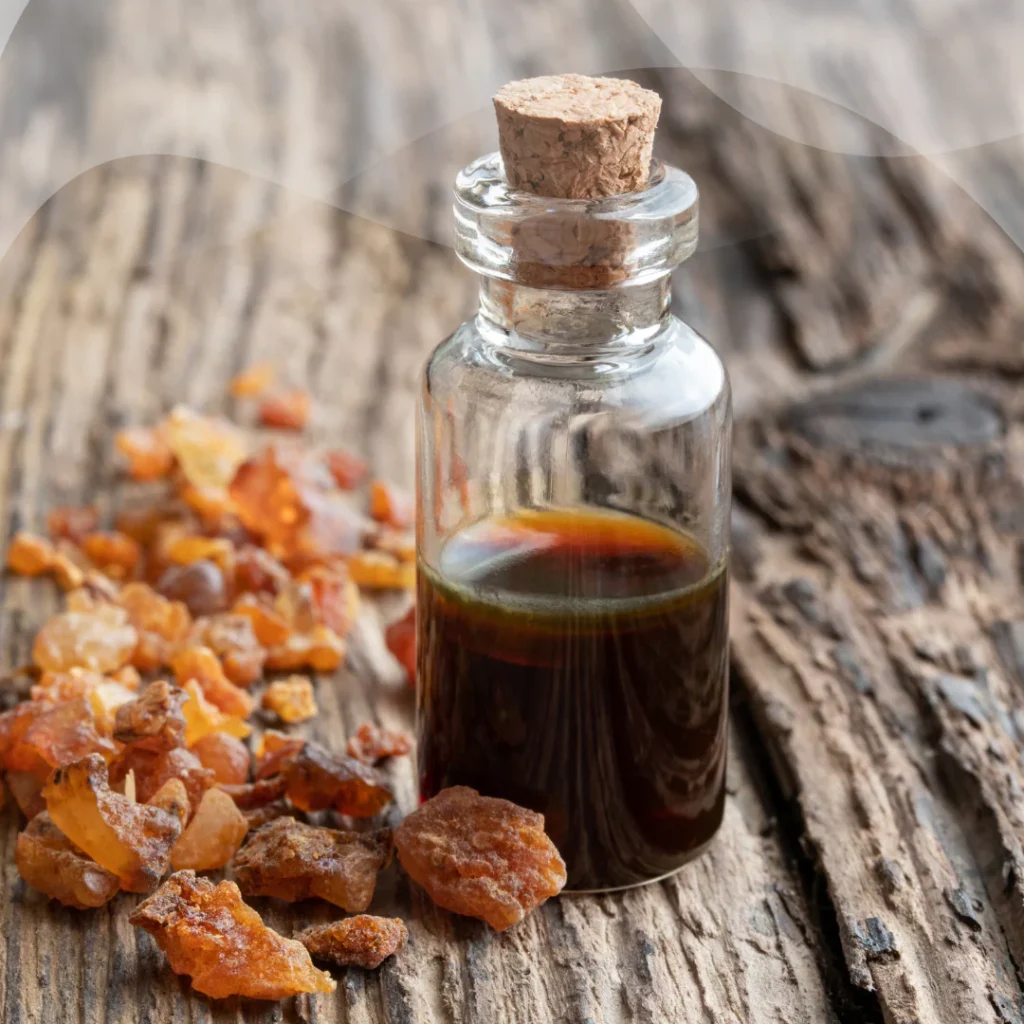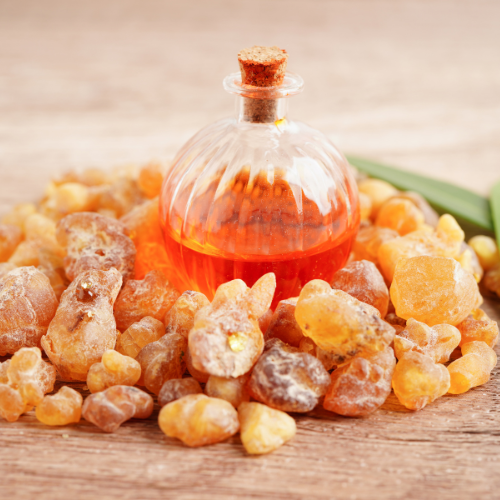INTRODUCTION:
Myrrh, known as Mur Makki in Arabic and Urdu, is a natural resin extracted from the Commiphora tree species, primarily found in regions of the Middle East and Northeast Africa. This aromatic resin has been highly valued since ancient times for its wide range of uses in medicine, perfumery, and religious rituals. Its name is derived from the Arabic word “murr,” meaning bitter, which reflects its distinct, pungent taste.

English: Myrrh
Arabic: مر مكي (Mur Makki)
Urdu: مر مکی (Mur Makki)
Hindi: गुग्गुलु / मूर (Guggulu / Moor)
Sanskrit: Bola / Balsamodendron
Persian (Farsi): مر (Mur)
Hebrew: מור (Mor)
Turkish: Mür
Swahili: Manemane
French: Myrrhe
Malay/Indonesian: Mur
HEALTH BENEFITS:

Wound Healing:
Myrrh supports skin repair and healing for minor abrasions and wounds.
Skin Soothing:
It can be used in lotions to help reduce the appearance of fine lines and wrinkles and to calm skin after shaving.
Inflammation & Pain:
Myrrh has anti-inflammatory and analgesic (pain-relieving) properties that can help ease muscle aches and joint pain.
Anti-inflammatory Effects:
The compounds in myrrh may help reduce the inflammatory chemicals in the body, potentially benefiting conditions like arthritis.
Antioxidant Properties:
Myrrh contains antioxidants that protect against free radical damage and oxidative stress, which is linked to various chronic diseases.
Aromatherapy:
Diffusing myrrh can create a soothing and balancing atmosphere in the home.
Acts as an analgesic:
Myrrh contains compounds that may interact with opioid receptors in the brain, helping to temporarily relieve pain.
Reduces swelling:
It blocks the production of inflammatory chemicals that can lead to swelling and pain.
Addresses joint pain:
When massaged into the lower back or other sore joints, myrrh and frankincense oil have been shown to reduce pain and disability in preliminary human studies.
SIDE EFFECTS:

Irregular or increased heart rate:
Large amounts of myrrh (more than 2 to 4 grams) can affect your heart rate.
Diarrhea and stomach upset:
Taking myrrh orally may cause diarrhea and stomach irritation.
Kidney irritation:
Ingesting large quantities of myrrh can cause kidney problems.
Topical skin reactions:
Applying myrrh directly to the skin can cause contact dermatitis, redness, swelling, and itching, particularly in people with sensitive skin.
Fever:
Myrrh may make a fever worse.
HOW TO USE:
1.As a Powder
Internal Use (Traditional Medicine):
Take a pinch of powdered Mur Makki mixed with honey or warm water.
Often used in Unani and Ayurvedic medicine to aid digestion, relieve joint pain, or support women’s reproductive health.
Caution: Not to be taken in high doses or for long periods without medical advice.
External Use:
Mix the powder with water or rose water to form a paste.
Apply on wounds, skin infections, or inflammatory swellings as an antiseptic.
2.As an Oil (Myrrh Essential Oil)

Aromatherapy:
Add a few drops to a diffuser for a calming, grounding effect.
Helps reduce stress and enhance spiritual practices.
Topical Application:
Dilute with a carrier oil (like coconut or olive oil).
Apply on muscles, joints, or chest (for respiratory relief).
Used in skincare for acne, wrinkles, and dry skin.
3. As a Tincture or Resin Piece
Mouthwash/Gargle:
Add a few drops of tincture or soak resin in warm water.
Use to treat mouth ulcers, gingivitis, or sore throat.
Burning as Incense:
Burn a small piece of resin on charcoal.
Used in spiritual rituals, meditation, or to purify the air.
Precautions
Pregnant or breastfeeding women should avoid internal use.
Always dilute essential oil before applying to the skin.
Consult a qualified practitioner for long-term or internal use.




